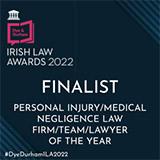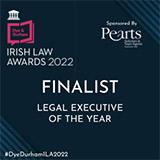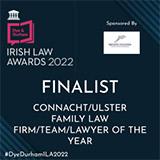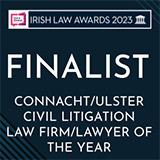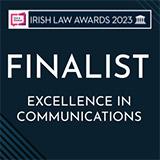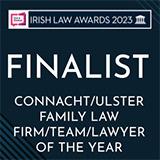At Berwick Solicitors LLP we are often asked to advise parents/grandparents of children with additional learning needs or addictions. In particular how best to make financial provision for their children/grandchildren after they are gone.
We help clients who have children who are living with Down Syndrome, autism, cerebral palsy among many other conditions. In addition, we help clients who wish to leave assets to vulnerable individuals battling addictions (gambling, alcohol etc) or other issues which leave them unable to suitably manage their own personal and financial affairs.
We help clients deal with the various challenges involved around vulnerable children having to deal with an inheritance; or who are potentially vulnerable to financial abuse because of their situation. This also includes helping to ensure that any means-tested State support is not affected by a change in circumstances.
It is important to understand the unique considerations and circumstances that each family faces and we take the time to do this thoroughly. There are various options available to parents and grandparents (and other family members) of children with learning needs or addictions and the tax implications of these can be complicated.
Making direct gifts, for example, is not usually the best way forward. In addition, leaving a substantial inheritance can leave children, as well as vulnerable adults, open to financial abuse (and it can adversely affect State benefits already being claimed).
Pilot Trusts and Will Trusts
The use of trusts is one of the main ways that adults can provide for their children. Parents or grandparents can establish a trust during their lifetime which may include a trust in a will which comes into effect when someone dies.
A trust is a legal mechanism to hold assets for someone. The settlor (i.e. you) creates a trust by giving property to a trust fund. A trust may be set up initially with a small amount of money (often €100). Once created, the trust is then available to receive further assets in the future. Such assets may be from parents but can also be from other relatives who can either make direct gifts to the trust or leave money or a share of their estates to the trust through their wills. These trusts are often known as ‘pilot trusts’.
A pilot trust can then be referred to in parents’ or grandparents’ wills without the need for those wills having to have complex trust arrangements of their own.
If a suitable trust is not in place and money is left directly to children – either in a will or under intestacy rules (the rules which set out who receives what if there is no will in place) – this can have a direct impact on any means-tested benefits they may be entitled to. It can also lead to a costly and time-intensive application under the Assisted Decision Making (Capacity) Act 2015 to find someone to assist with looking after the money.
For the protection of vulnerable persons – that is minors (children under the age of 18) or adults who for some physical or mental reason are unable to take care of themselves or their finances – we usually advise on a discretionary trust.
A Discretionary Trust
We consider this to be the most flexible option. The trustees decide when and how capital and income is used for the benefit of the relevant beneficiaries. Any vulnerable beneficiary receives money as and when necessary.
The tax regime and advice regarding the management of discretionary trusts falls outside the scope of this information sheet, but bespoke advice can be provided if requested.
An important part of the discretionary trust planning is to have a ‘Letter of Wishes’ from the settlor to the trustees explaining what they wish the trust to be used for in relation to their child or children.
Trustees
We frequently advise clients on the appointment of trustees and this is a vital part of trust planning. Trustees have the burden of administering the trust including tax planning and management, the investment of assets and considering the needs of the beneficiaries.
We always advise that it is important to find the right balance between appointing individuals who understand the needs of the child and those with the experience and skills to be able to administer a trust effectively.
Letter of Wishes
We can advise on the terms and details of the Letter of Wishes to accompany any discretionary trust. This can cover not only how the trust fund should be used, it can also include more specific information about the child – such as their hobbies, likes, and dislikes and detail how the trust should be used to support them accordingly.
Administration
All trusts need to be properly administered. This usually involves the trustees registering the trust with the Revenue Commissioner’s online trust registration service, filing annual tax returns and issuing appropriate tax deduction certificates to beneficiaries who have received income. The trustees should also maintain trust accounts and properly manage the trust’s property or investments. The amount of administrative work will depend on the nature of the trust assets and on the frequency or otherwise of distributions of income and capital.
How we can help?
Advising and supporting parents or other family members of children with learning difficulties or other vulnerabilities is one of the most challenging, yet rewarding, aspects of our work at Berwick Solicitors LLP.
Each vulnerable beneficiary’s circumstance will be different, and bespoke advice should be sought in each case as there is no one size fits all approach for deciding which trust structure is best suited to a particular beneficiary.
We work in close cooperation with other professional advisors, in particular accountants and tax advisors, to ensure an individual or a family’s aims are met. Our lawyers have specialist qualifications and are members of the Society of Trusts and Estate Practitioners (STEP).
STEP is the worldwide professional body which promotes high professional standards and education for its members. Becoming a full STEP member is the top professional qualification for a wills, trusts and probate solicitor.
Disclaimer
This information sheet is written as a general guide. As any course of action must depend on your individual circumstances, you are strongly recommended to obtain specific professional advice before you proceed. We do not accept any responsibility for action which may be taken as a result of having read this information sheet.
NOTE: The law is stated as at 10 September 2023.
If you require further information, please contact Allison Dey on 091 567545 or allisondey@berwick.ie
